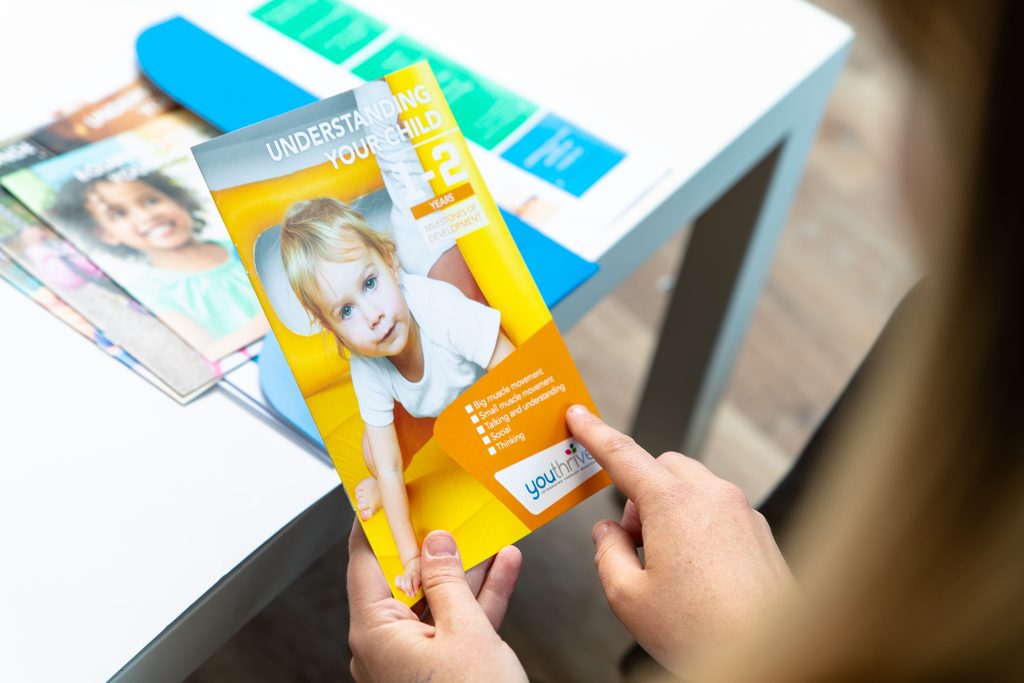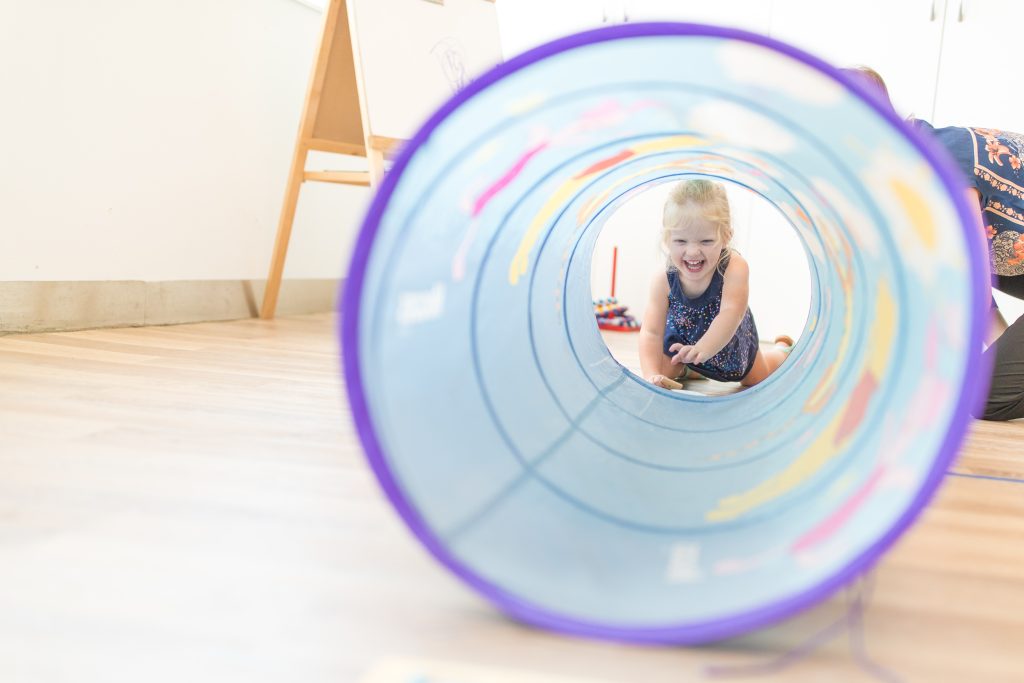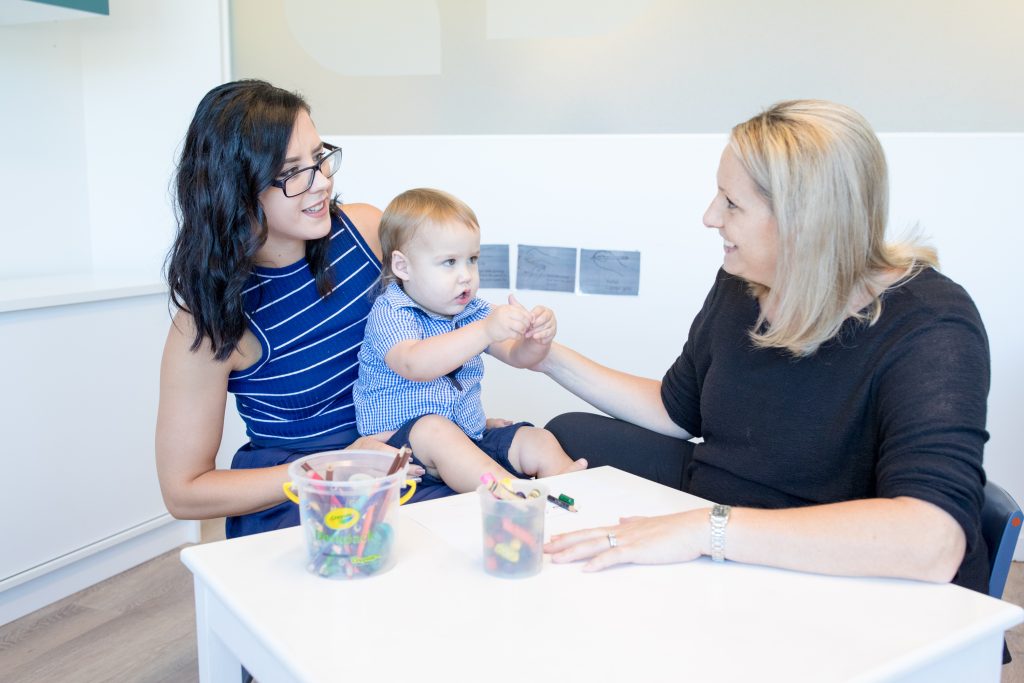Where do I start?
If you are a parent who has not had any experience with therapy services for your child, the process may seem overwhelming. However, together we can make the process as comfortable for you and your child as possible!
In this article, we have provided answers to some of our most frequently asked questions. We hope this will give you guidance, reassurance and most importantly, a better understanding of your child’s therapy process.
Do I need a referral?
Your child does not require a referral to see our therapists. We can complete an assessment on your child following a self-referral. However, a referral from your GP, Paediatrician or Psychiatrist may entitle to you Medicare rebates. These can contribute to the cost of sessions.
Simply call up and let us know you’re interested in seeing one of our therapists. We can book in an initial consultation at a time that suits you.
What if my child needs more than one type of therapy?
Youthrive is a unique service that provides three types of therapy – psychology, speech pathology and occupational therapy for kids and young people. Our integrated model means children and teenagers receive high quality professional support in one location without the stress and cost of travelling to separate service providers. Your child may need one, or a combination, of the three therapies.

A benefit of our service is that if the therapist identifies additional areas in your child’s life where they may benefit from multiple integrated therapies and you give consent, they can discuss with the relevant practitioner and present you with a treatment plan.
Youthrive’s unique integrated therapy model means that your child can benefit from a whole and cohesive treatment plan. This plan caters for the cognitive, behavioural and emotional difficulties your child may be facing.
What happens at your first psychology appointment?
In the first appointment, your psychologist will ask detailed information about your child’s family history, health, development and education, and about the current concerns you have. This may include questions about stressors that may be affecting the family. You do not have to answer any questions that you do not wish to. Likewise, you can always ask the psychologist why they are asking if you are unsure about a question.
We appreciate if any previous reports can be brought along to the first session if you are happy to share these with your psychologist.
Does my child come to the appointment?
The first appointment is usually with the parent/s or carer/s, without your child present. This is so that your psychologist can collect background information about your child and you can cover all your concerns in detail. However, if you are on a Medicare Care Plan your child will need to be present for the initial consultation.

What happens at your first speech pathology appointment?
The initial appointment is usually an hour in duration. Your speech pathologist will complete an assessment to assist with identifying goals for therapy. You will also be asked to complete a consent form if this has not been completed previously.
Please bring any referrals or previous reports along with you to the first session. Information about your child’s developmental history such as milestones will also be discussed.
Can I come into the session with my child?
You and your child attend the initial appointment together. This is because your speech pathologist will ask detailed information about your child’s family history, health, development and education. They will also ask about the current concerns you have.

What happens at your first occupational therapy appointment?
At your first appointment, your occupational therapist will observe how your child engages in the environment. They will also conduct an assessment to assist with identifying goals for therapy.
We appreciate if any previous reports can be brought along to the first session if you are happy to share these with your occupational therapist.
Do I come to the appointment?
The first appointment is usually with the parent/s or carer/s, with your child present. This is so that your occupational therapist can collect background information about your child.

To view pricing for the initial consultation, please click here.
What does therapy look and feel like for children seeing a psychologist?
Therapy is different for every child. However, it may include direct work with your child and also strategies for you to put in place at home to assist your child’s behaviour, emotional wellbeing and development.
Some therapy sessions may consist of game play and play-based activities. Others may involve the completion of therapeutic tasks. For example, worksheets and role plays. However, most therapy sessions will involve the discussion of current events relevant to your child in addition to their associated thoughts, behaviours and emotions.

What is involved in occupational therapy and speech pathology sessions?
Your child’s speech pathology and occupational therapy sessions may include direct work with your child and strategies for you to put in place at home. These strategies will assist with your child’s behaviour, emotional wellbeing and development.
Sessions may be 30, 45 or 60 minutes long. This depends on your child’s needs and attention. It is important that you attend the sessions with your child, because you will be taught techniques and provided with homework to complete between sessions. Completing these activities is a very important part of the gains your child will make in therapy.

How many sessions will my child need?
All children learn at different paces and there is no ‘quick fix’. It requires hard work and commitment from families. The number of sessions required will be dependent on your child’s needs and how they progress through set goals. Improvements may be gradual and occur over a period of weeks or even months.
How do I know when therapy is completed?
Children and families can withdraw from treatment at any stage. This typically occurs when a child has made significant progress and/or when their reasons for initiating support are no longer detrimental to their everyday lives. It is always a good idea to have a regular check-up every few months following the completion of therapy. Similar to having your car serviced, it is always a good idea to ensure that things are continuing to work smoothly.
For more information:
If you have any other questions about the therapy process, please don’t hesitate to contact our friendly team: www.youthrive.com.au/contact/
To start your therapy journey, please click here to book your first appointment.
